|
FREE WEBINAR with Dr Albert & Leonida Mrgole, therapists and parents of four children. Date: 8 November 2021 at 20:00 Central European Time (Brussels Time) Location: Live streaming on Facebook page Erasmus+ Courses by Primera and YouTube channel Erasmus by Primera. Adolescence is the last period before adulthood. In this period, children are developing mentally, physically and emotionally. It is not an easy task for them, so it is very important that they have us parents for support. Parents who wouldn’t fall even in the strongest hurricane. That's why it is especially important that we, as adults, maintain a connection during this period. Even if we don’t always agree with our adolescents, even if they are cross lines and sometimes do silly things. In this webinar, we will talk about the experiences of parents, our own above all. You will learn:
The webinar is free of charge, held in English. Warmly welcome teachers and parents. Send this invitation to other parents who might be interested to join. Albert and Leonida, authors of the book Connect with Your Teenager, are successful and well known therapists in the field of parenting and family relationships. They organize numerous workshops for parents and couples. They have been working in this field for over 20 years and are known for leading unforgettable events. Albert has a PhD in sociology and studied psychology, doing fieldwork with marginal youth in a residential care institution. He developed a program for rescuing school dropouts, which received the European Innovation Award. He has been a practicing psychotherapist since 2003. Albert initially trained in systemic family therapy, and he and Leonida continued their studies with Imago clinical therapy techniques and began working as co-therapists. Leonida is a trained reflex therapist and learned about psychology and parenting techniques “in the field.” Also, check Primera's Erasmus+ Courses for teachers and trainers.
This year we still have two confirmed courses in Ljubljana, if you want to use your Erasmus+ grant by the end of the year. Join two interactive learning experience with supportive trainers.
In this blog you will find a link to a rich resource pool of tools to prevent early school leaving of students. The tools are available in 4 different languages.
The Cross-sectoral Cooperation Focused Solutions for Preventing Early School Leaving (backronym: CroCooS – Prevent Dropout!) was an international project aimed at preventing dropout. The general aim of the CroCooS project was to contribute to the specification and the applicability of an institutional early warning system (EWS) for preventing early leaving from education and training, by identifying elements of EWS. The projected resulted in a rich resource pool for teachers, counsellors and headmasters who want to build their school capacity to reduce early school leaving. Find resources in 4 languages: English, Hungarian, Serbian and Slovene:
Find resources on the project webpage here: CroCooS. By reading this article you will learn why it is so important to provide career guidance services for (head)teachers and students in schools to raise their career knowledge and develop their career skills and some ideas of how to do it.
Career guidance refers to a range of activities that enable citizens of any age, and at any point in their lives, to: identify their capacities, competences and interests; make meaningful educational, training and occupational decisions; and manage their individual life paths in learning, work and other settings in which these capacities and competences are learned and/or used. Lifelong guidance is provided in a range of settings: education, training, employment, community, and private. « (ELGPN 2012, 13) Some facts about career in 21st century: Start your New Year with a brand new Erasmus+ experience. Join one of our confirmed session. We already have a few 100% confirmed sessions for Spring 2020.
Check out the list below: 26. 01. – 01. 02. 2020 Yes, i can: Special needs students and inclusive education – Ljubljana, Slovenia 02. – 29. 02. 2020 Teaching character: Positive psychology for every teacher Ljubljana, Slovenia 15. 03. – 21. 03. 2020 Peer coaching as a sustainable source of professional development – Ljubljana, Slovenia Learn to ask powerful questions. By using this tool, you can help your colleagues and students to GROW. Multiculturalism – Teacher’s role in the integration process of immigrant children Ljubljana, Slovenia Who is up for fostering diversity and multiculturalism in kindergartens and primary schools? This course will teach you how to implement activities with different stakeholders in the process of integration of immigrant children. 22. 03. – 28. 03. 2020 Stress management in schools – Ljubljana, Slovenia Prevention of violence: say NO to bullying and child abuse – Ljubljana, Slovenia 03. 05. – 09. 05. 2020 What provokes conflict and how can we manage it? – Ljubljana, Slovenia Teaching character: Positive psychology for every teacher – Split, Croatia If we got your attention but you have more questions before you make the pre-registration, please write us an email to [email protected] We’ll be happy to help you get the perfect Erasmus+ experience. With love, Primera Group Do you consider yourself a creative thinker? Do you think creativity is given at birth or it can be learned? This December we kicked it off with Teaching Creativity in Schools course. We were joined by participants from Croatia, Slovenia, Latvia and France. Creativity is the foundation of change and progress. This first week of December was here and we were kicking it off with Teaching Creativity in School course. The course was presented by our amazing teacher Nastja Mulej who shared her knowledge with our participants this past week. This course is designed for teachers who want to stimulate creative parallel thinking in the classroom, therefore our guests learned about techniques of problem-solving from a fresh perspective. Course content Creative thinking means looking at something in a new way. It is the very definition of “thinking outside the box.”. In class, there needs to be the right mix of creativity, which will help students to be innovative and learn with fun. That way it also encourages them to learn new things in a new way and have freedom of expression. It also plays a vital role in children’s emotional development. Through creative expression, children can become good communicators in addition to improving their emotional and social skills. Creative thinking course introduce differences between convergent and divergent thinking and clarifies the process of creative thinking. Participants get familiar with common barriers that prevent creative thinking in the classroom and learn how to solve school problems with different thinking methods. By substantially understanding creative and constructive thinking framework and models, they can use different thinking tools to raise creative thinking in their classrooms. They learn to lead efficient creative thinking sessions and raise awareness in principles of parallel and perceptual thinking. For that, transfer of best practice was experienced on Wednesday school visit to Valentin Vodnik Primary School, where participants were introduced to the school’s Thinking Club. Afternoon activities On Sunday our guest gathered together for the introduction evening. We learned where they are coming from and they told us something about themselves. On Monday afternoon we took a stroll around Ljubljana’s old town with a guide, who showed us all the main attractions in the city. Later that evening, we headed to a real authentic Balkan dinner with specialities like burek and čevapčiči. Tuesday and Thursday participants had free afternoons to enjoy Ljubljana in December spirit and some decided to see the city from above. They visited the Ljubljana’s medieval castle, where they enjoyed the view. After, it was a must to try mulled wine at Christmas stalls. While our participants are visiting to gain knowledge about Creative Thinking, we also like to introduce them to Slovenia’s natural and cultural heritage. Accordingly, on excursion day on Wednesday, we had our famous trip to Lake Bled. On the way back we stopped for dinner in Lectar Museum and Restaurant, where they showed us how they make traditional honey bread hearts. For dinner, they presented us with traditional Slovenian food with a glass of wine. With the accompaniment of accordion musicians some even had a dance! Saturday was the last day on our schedule, so participants said farewell and promised to keep in touch. Before us is the last course this year and we are preparing to finish it with just as much good time and spreading knowledge as we did throughout the year!
Don’t miss our next week participants with checking our Blog site, to keep up with new tips and week courses that we post just for you! See you in Ljubljana, love Primera Group Interested to see how our Career Development week looked like? On this last November course, we had guests from Latvia and Lithuania. This week participants were lucky enough to have not one, but two teachers! Tatjana Ažman (PhD), our senior lecturer, and Mihaela Zavašnik Arčnik (PhD), who has more than 15 years of experience of working with adults and students in the education sector, have joined forces to bring a better understanding to this week topic. Through participating in Career Development programme, our guests got to work on enhancing employability and improve career prospects for teachers and students. Course content Our world is changing rapidly. The way in which work is organised is shifting in response to political, economic, social, environmental and technological influences. Career development can be used to help societies, individuals and organisations to respond to and shape such changes. Through participating in career development programme, participants assessed and developed their 21 career competencies, which helped them learn, raise their self-awareness, plan their career goals, reflect on their career path, find work, manage to balance different life roles, make professional changes, deal with career challenges and be more satisfied in their professional life. Through interesting exercises, discussions, deeper reflection, play roles and peer feedback, participants were showed how to use exercises, questionnaires, worksheets and other materials for career guidance in their work contexts. Our Thursday guest speaker Peter Gabor from Employment Service of Slovenia, brought even more context to this topic with his lecture about the institution he is coming from and their project on National coordination point and Life-long career orientation. Afternoon activities One of the main goals of the course is to connect with each other. Therefore, on Sunday participants introduced themselves, the organisation they were coming from and projects they are working on. On Monday afternoon they had a chance to see Ljubljana on a walking tour around the old town. At the end of the day, they could taste an authentic Balkan food at dinner. As well as visiting Bled Lake on Wednesday afternoon, the group visited High School Moste in the morning, to see hands-on, what they were learning so far on this course. In the afternoon they saw the beauty of Lake Bled. To get to know Slovenian culture better, we later had a visit to Lectar museum. There they showed them how honeybread hearts are made and played us traditional Slovenian music. On Saturday our participants said farewell. Some made last-minute trips and some went back to their home country. As much as we had a good time, they also discovered new things about themselves and gained new knowledge. Being now skilled in career competencies themselves, participants are additionally empowered to support their children and students to develop their own career competences.
Check our Blog site regularly, to keep up with new tips and week courses that we post just for you! See you in Ljubljana, love Primera Group With this short blog post, we’ll take you trough how our past week looked like. This time we had teachers from Romania, Malta, Portugal, Hungary and Greece. They were all here to learn about conflict management. Together with our lovely trainer Janja Rebolj, group managed to have a lot of fun while dealing with difficult topics. Main part of the course content was avoiding unnecessary conflicts by understanding conflict triggers. Additionally what participants learn is, that conflicts are sometime unavoidable. However, how we manage them, is up to us. Course content Throughout the course week, participants were trying to find an answer to the question What provokes conflict and how can we manage it? While doing so, they learned about Goal of Relationships Awareness Theory (RAT), Motivational Value System, Portrait of Personal Strengths, Portrait of Overdone Strengths and Conflict Model. Relationship Awareness Theory with SDI questionnaire gives participants an insight into their motivational system, relationship strategies and managing conflicts styles. This way they move from Awareness to Understanding and then to Effectiveness. Various stimulating exercises and creative discussions were provided about transferring of key learning points to work and family contexts. In the end, the main question was: Are you red, blue or green? Afternoon activities On Monday afternoon, participants were discovering Ljubljana and learned about Slovenian poet France Prešeren and history of the city. Evening has come to an end with a true Balkan dinner. Complementary to Monday guided tour, our teacher Janja and the group visited City Museum of Ljubljana on Thursday. Wednesday was an excursion day and we headed to Lake Bled. We enjoyed a boat ride to the only island in Slovenia – island on Lake Bled. After trying Blejska kremšnita (cream cake typical for Bled) we headed back for dinner at Druga Violina. It is a social project restaurant employing several people with special needs. There we tried traditional Slovenian dishes like Kranjska sausage, štruklji and Prekmurska gibanica. The week passed quickly and on Saturday we were all sad our participants had to leave. They left with newly gained knowledge in conflict management, foreign cultures, met new acquaintances, and most importantly, made lifetime memories. After their goodbye, we are looking forward to new hellos from our next week guests.
See you in Ljubljana, love Primera Group Have you ever wanted to do something differently in the classroom? What we have in mind is that your role of a teacher can change tremendously. You would not be sage on the stage anymore, but guide by the side. What are Participatory Learning (PL) Methodologies? Participatory Learning is an emerging group of methodologies for hosting learning by facilitating conversations between participants leading to opportunities for deeper and broader learning and building social capital skills (that also increase social, and emotional learning). The methodologies are based on the Art of Hosting (known also as Art of Participatory Leadership) approach and are adapted for the field of education. What does it mean ‘Hosting Learning’? It is:
Hosting learning for you as a teacher also means that you become a facilitator of the learning process. You will start to practice principles that will help to maximize collective intelligence, integrate and utilise diversity, practice collaboration, build leadership, and train managing conflict and working with diverse thinking. Why students love the Participatory Learning methodologies:
On our training Learner voice: engage students in participative and collaborative learning you will have the opportunity to learn and practice some of the methodologies like Circle, Open Space technology, World Cafe, Appreciative Inquiry, etc. You will also have the opportunity to learn and experience the power of storytelling. Author: Petra Založnik, BSc in Teacher Education and Sociology of Culture, is educator, evaluator and designer of innovative approaches to learning and teaching in the field of education, also our trainer in the course Learner voice: engage students in participative and collaborative learning Do you want to make a difference in 2019? You still have your chance. Until the end of 2019 we have these CONFIRMED courses. –> 11. – 23. 11. 2019 What provokes conflict and how can we manage it? We can’t promise you won’t get into a conflict ever again. And if someone says otherwise… well 🙂 However, you will get knowledge of your conflicts styles and strengthen your core conflict management skills. By this you will bring significant positive change into your private life as well as employment. –> 11. – 29. 11. 2019 Career development survival kit: Enhance employability and improve career prospects of teachers and students During this course you will have the chance to reflect on your career path, competences and management skills and create your career vision. Along with your growth you will additionally learn how to transfer gained knowledge and skills to your students. –> 12. – 06. 12. 2019 Teaching Creativity in schools Become more aware of common barriers that prevent creative thinking in schools and develop techniques to foster generation of original ideas in groups. By attending this course you can help improve school curricula, to provoke more “out of the box” thinking by the students and to foster their problem-solving capabilities. –> 12. – 14. 12. 2019 Non-formal participative teaching methods This course builds the competences to engage students by participatory learning. Throughout the course, you will get familiar with the impact you can have by building learning communities. All this en more will result in building social capital that increase social and emotional learning. To conclude this, Don’t miss an opportunity to finish your year successfully in magical Ljubljana. If we got your attention but you have more questions before you make the pre-registration, please write us an email to [email protected]
We’ll be happy to help you get the perfect Erasmus+ experience. With love, Primera Group Do you feel your students are not engaged enough? Do you wish you could lead deeper and broader learning sessions?By reading this article you will learn basic principles on how co-creating the process by students can help you get more involvement and satisfaction during your school year. Participatory learning methods (know as Art of Hosting) are practices that allow people to learn together. They offer us a new way of leadership and teaching. We all know this Confucius quote by hearth: “Tell me and I will forget, show me and I may remember, involve me and I will understand.” But HOW can we do it? Basic principles of the participatory methods are:
Are you interested in learning more? Since we strongly believe in learning by doing, we welcome you to join our course Learner voice, where you will have the opportunity to learn and practice methods along with colleagues from all over EU. Some of the methods presented will be Circle, Open Space, World Cafe and Appreciative Inquiry. First opportunity is already in December 2019. Don’t miss it and apply now! Here are some of the testimonies from or participants that have already attended the course. Published on the SchoolEducationGateway page: Author: Petra Založnik, BSc in Teacher Education and Sociology of Culture, is educator, evaluator and designer of innovative approaches to learning and teaching in the field of education, also our trainer in the course Learner voice: engage students in participative and collaborative learning
|
primeraWe empower teachers so they can do their job best. Categories
All
LINKSPrimera's practical handbook for writing high quality Erasmus+ mobility projects.
Pan-European Conference on Digital Education Facebook Community. Primera's FB page. Work with us on Erasmus+ KA2 projects: STEP Institute. |
Erasmus+ by Primera for teachersErasmus+ courses by Primera are dedicated to teachers who value evidence-based and practice-driven training in highly interactive international atmosphere.
OID Ljubljana: E10091479 OID Vienna: E10298896 E: [email protected] T: +386 1 320 28 43 Privacy Policy |
Navigation |
Stay tuned! |
© 2020 Skupina Primera Ltd. All rights reserved.


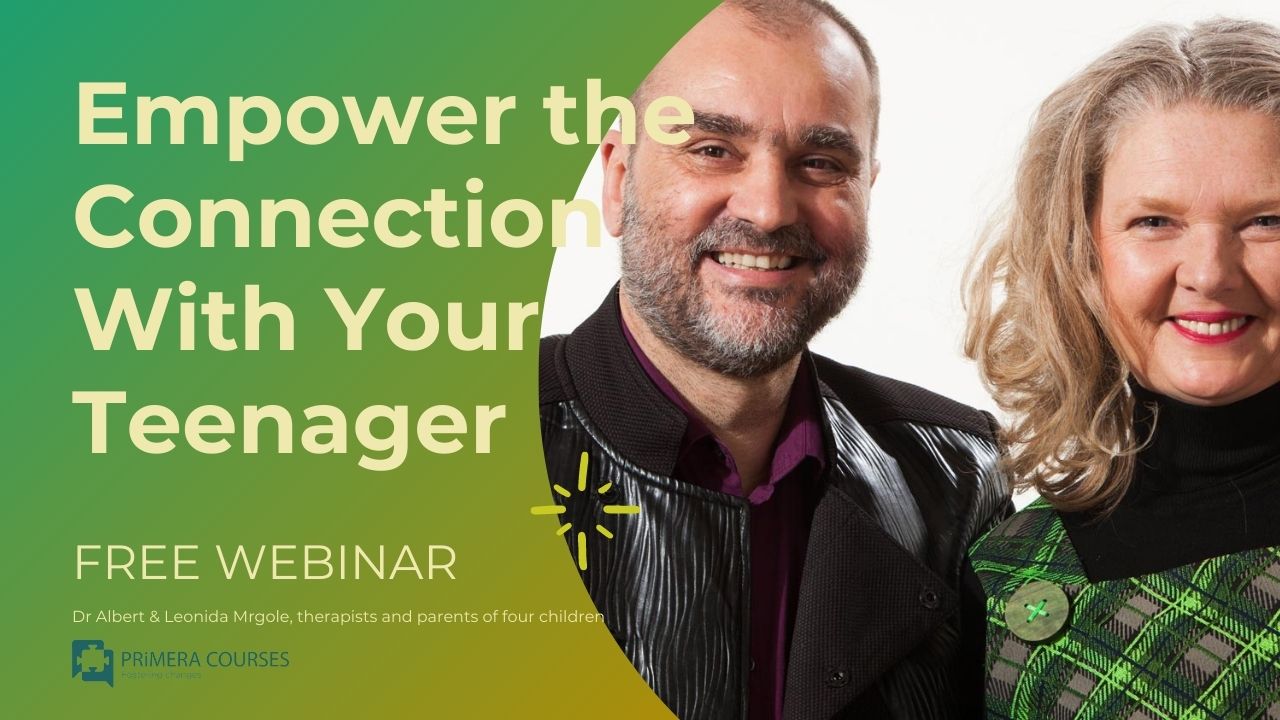

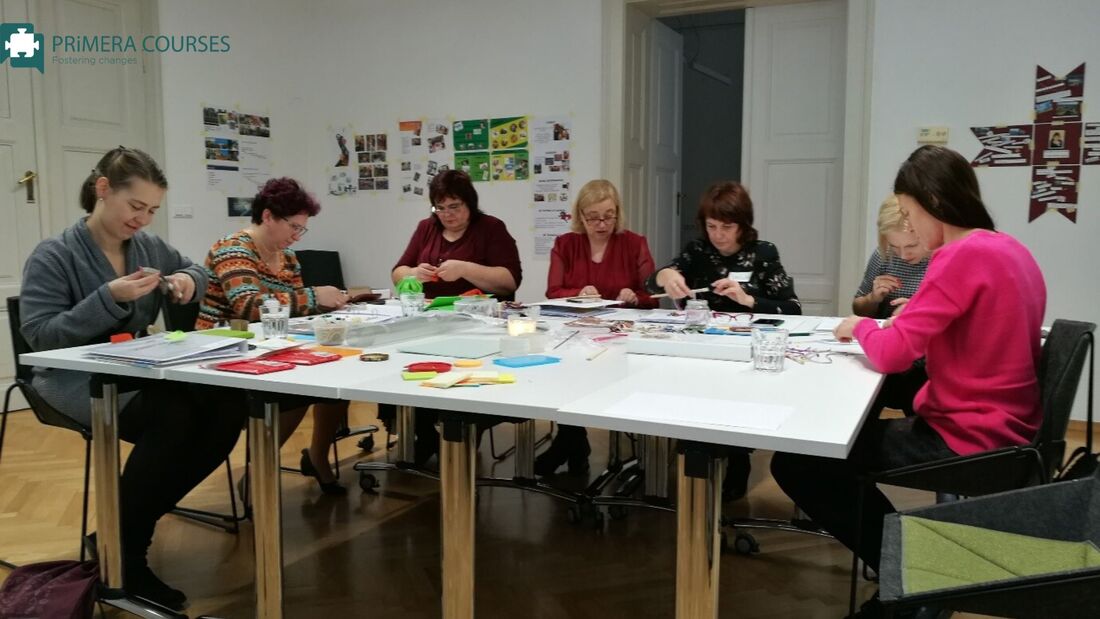
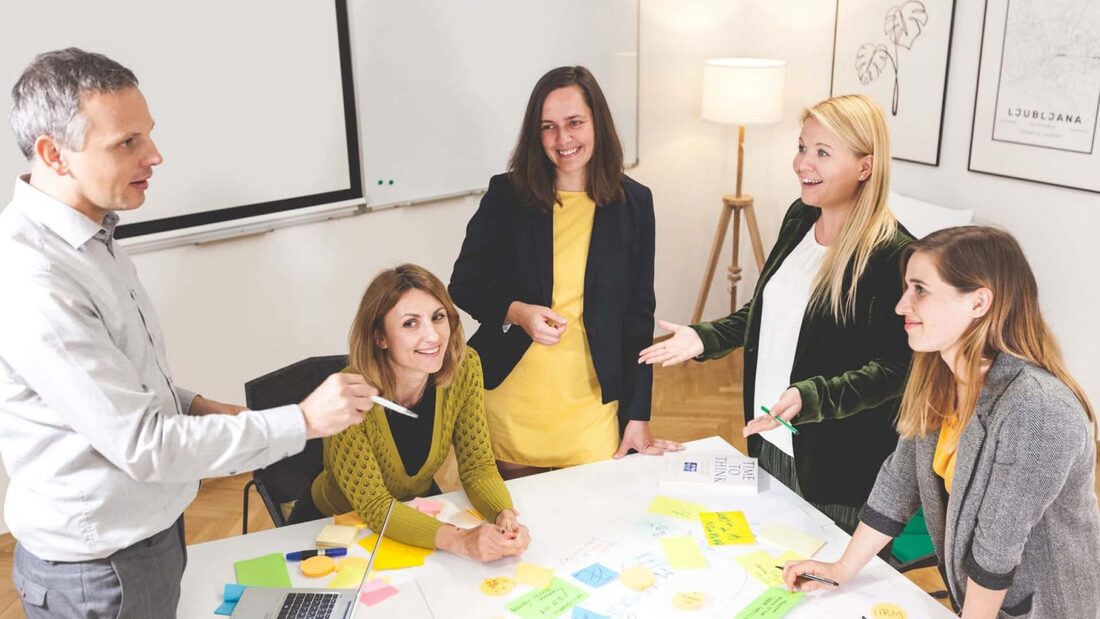
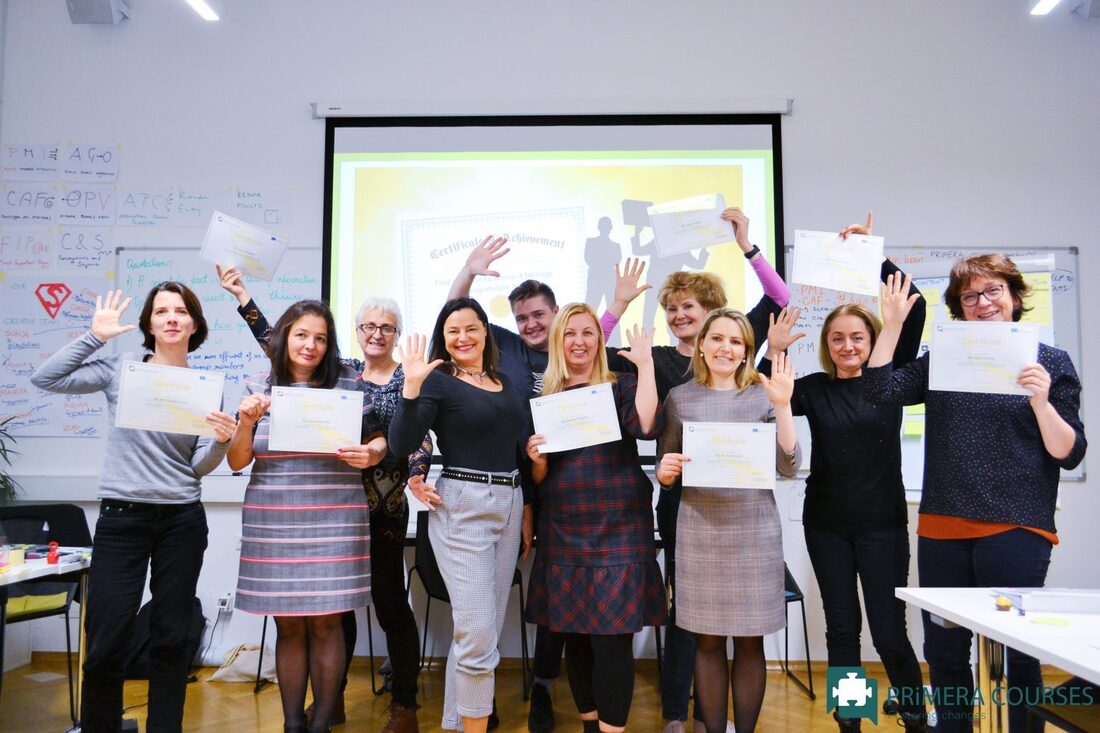
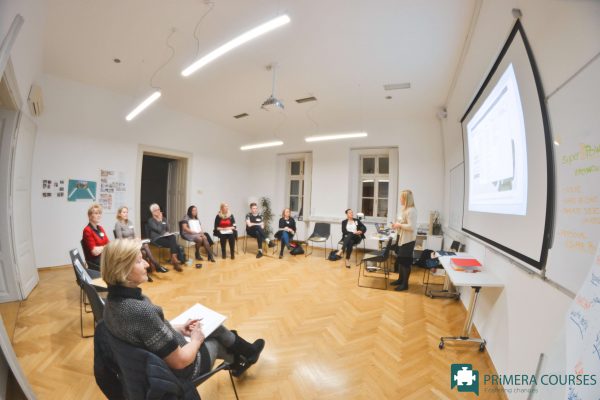
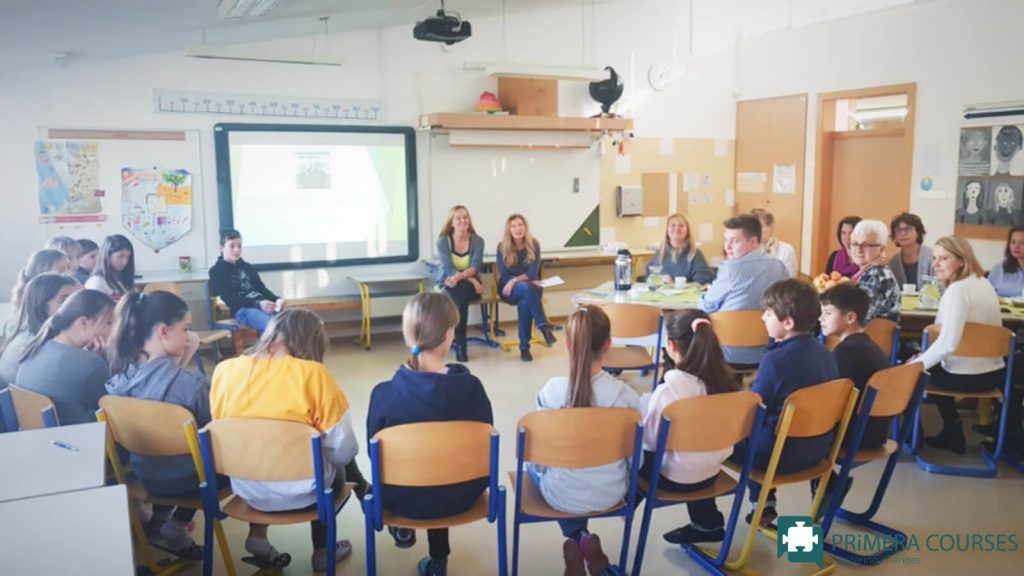
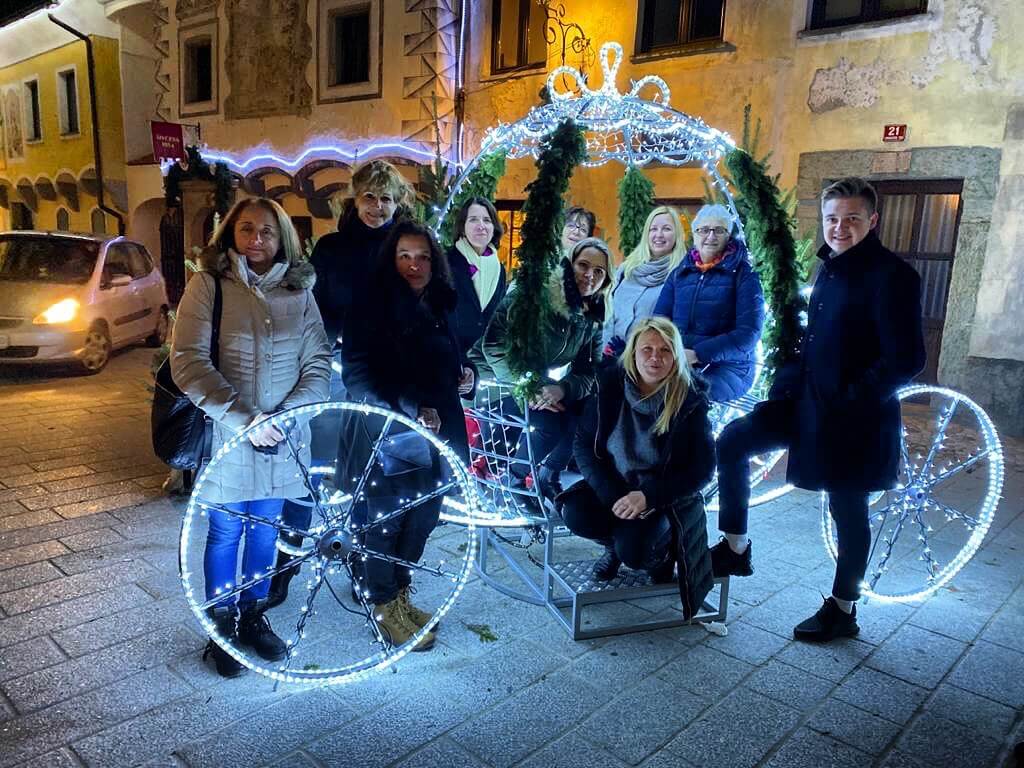
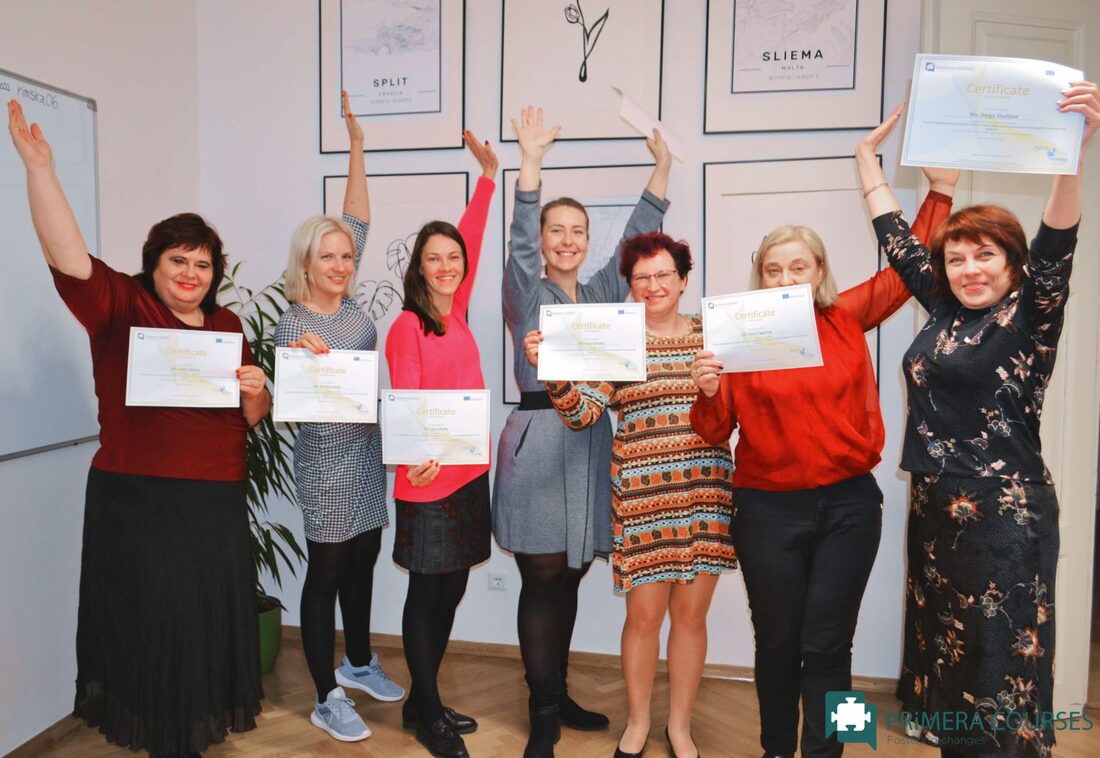
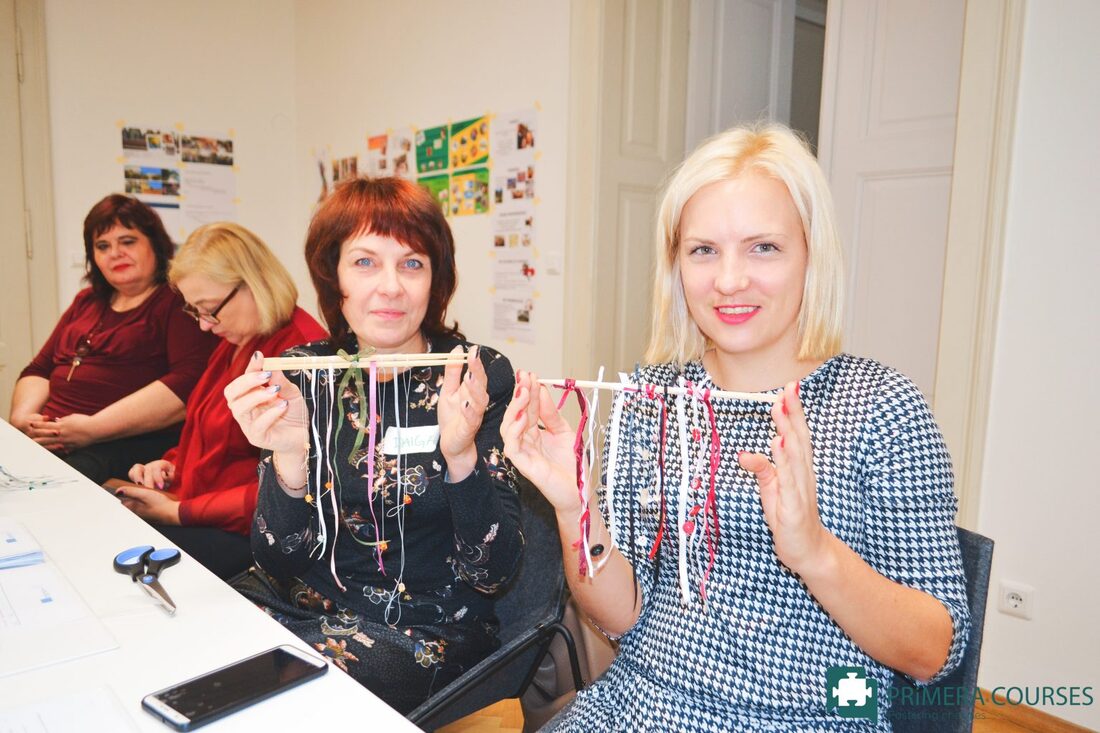
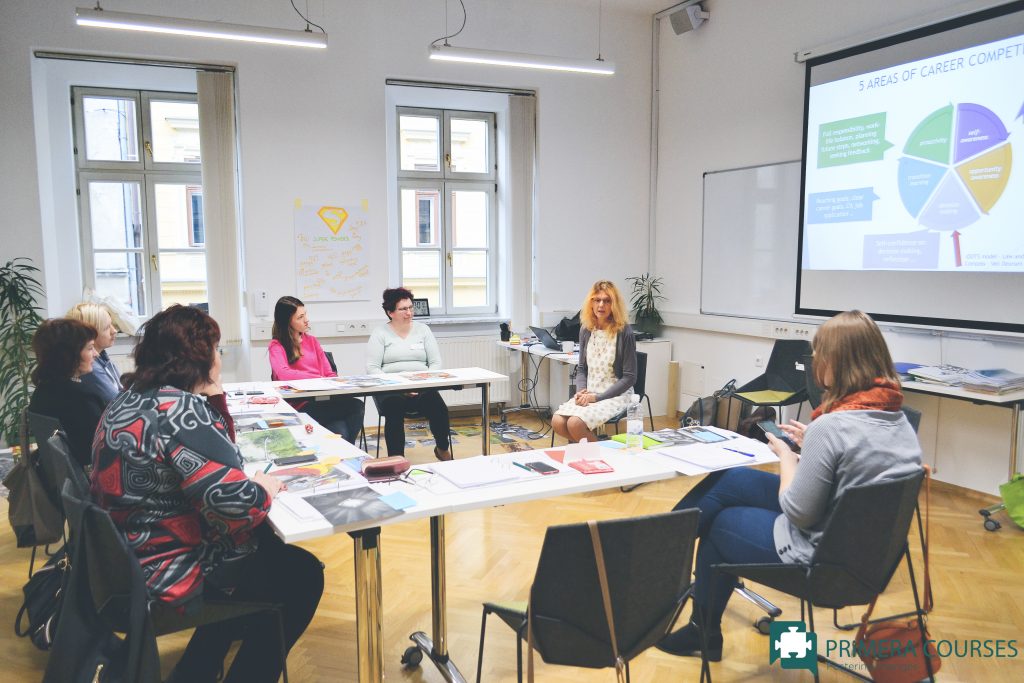
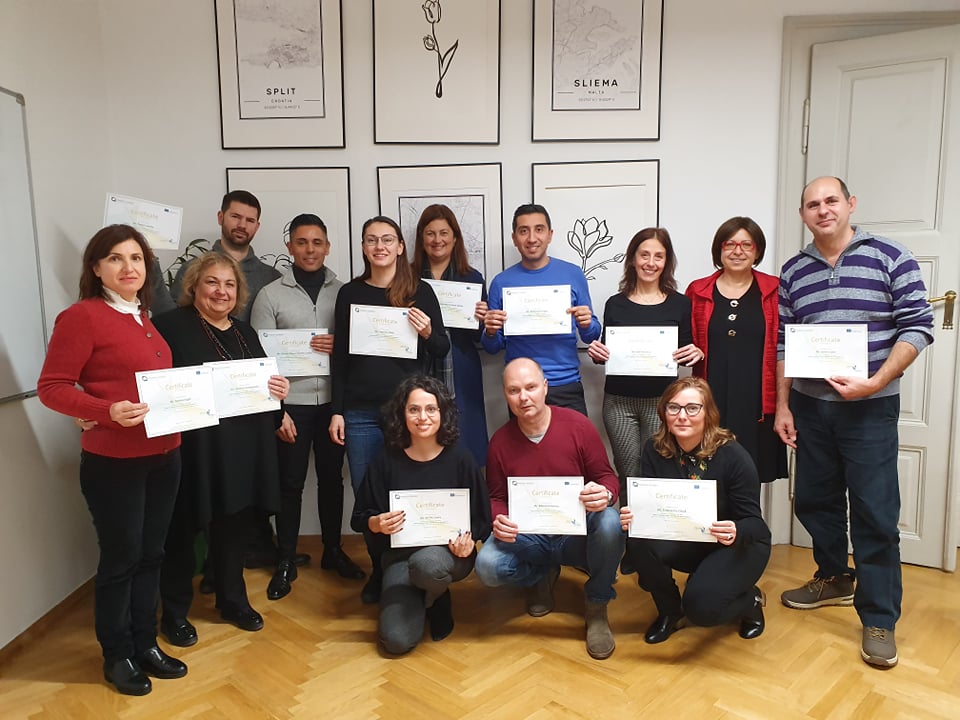
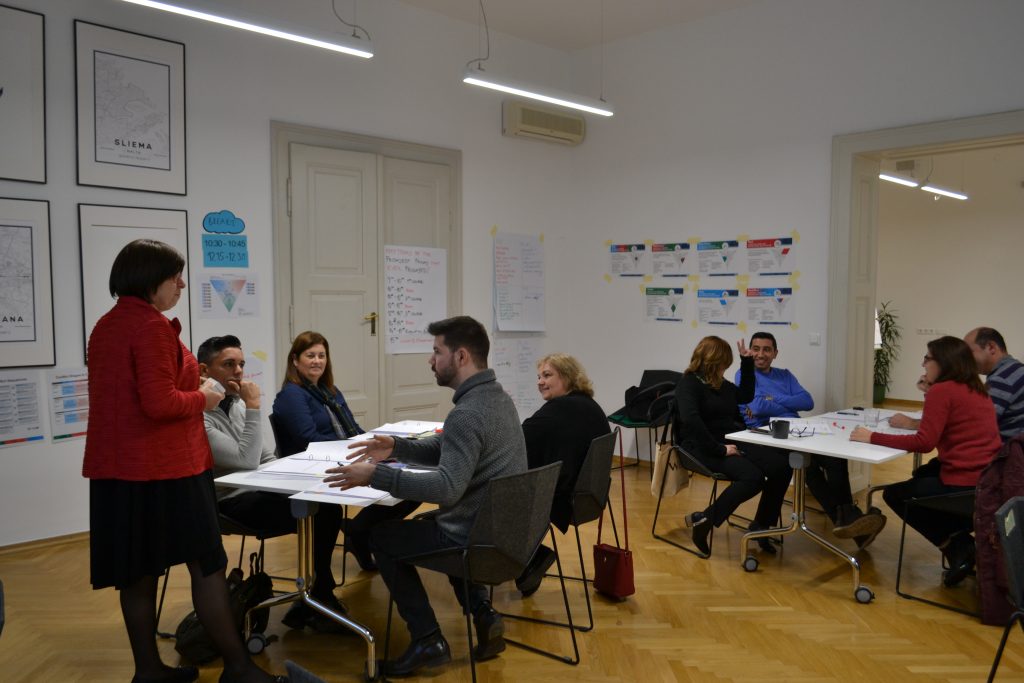
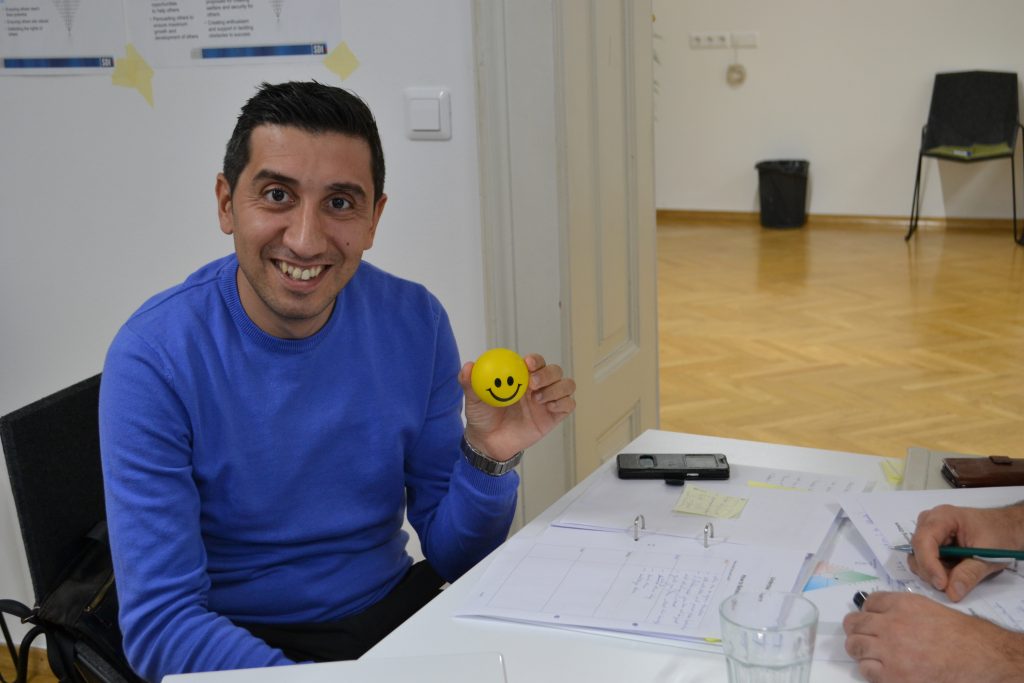
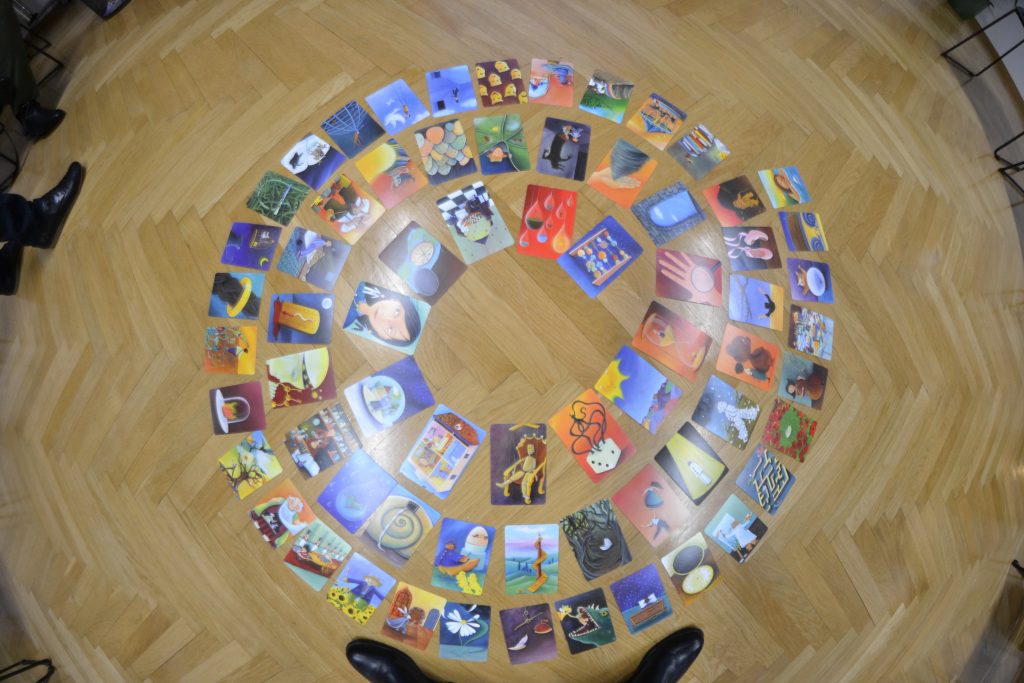
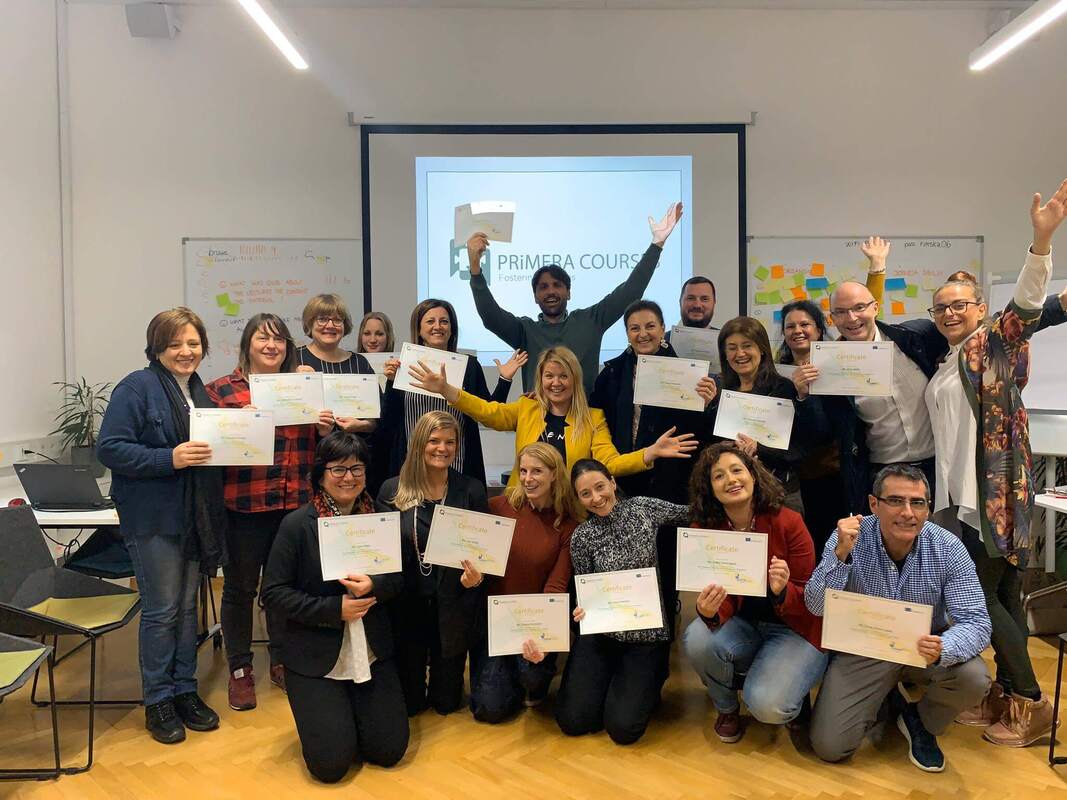

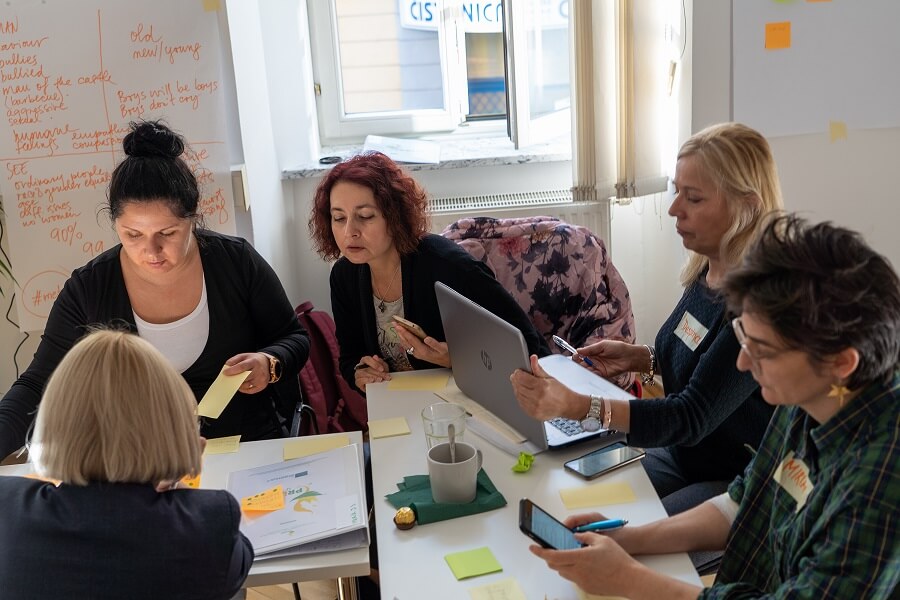
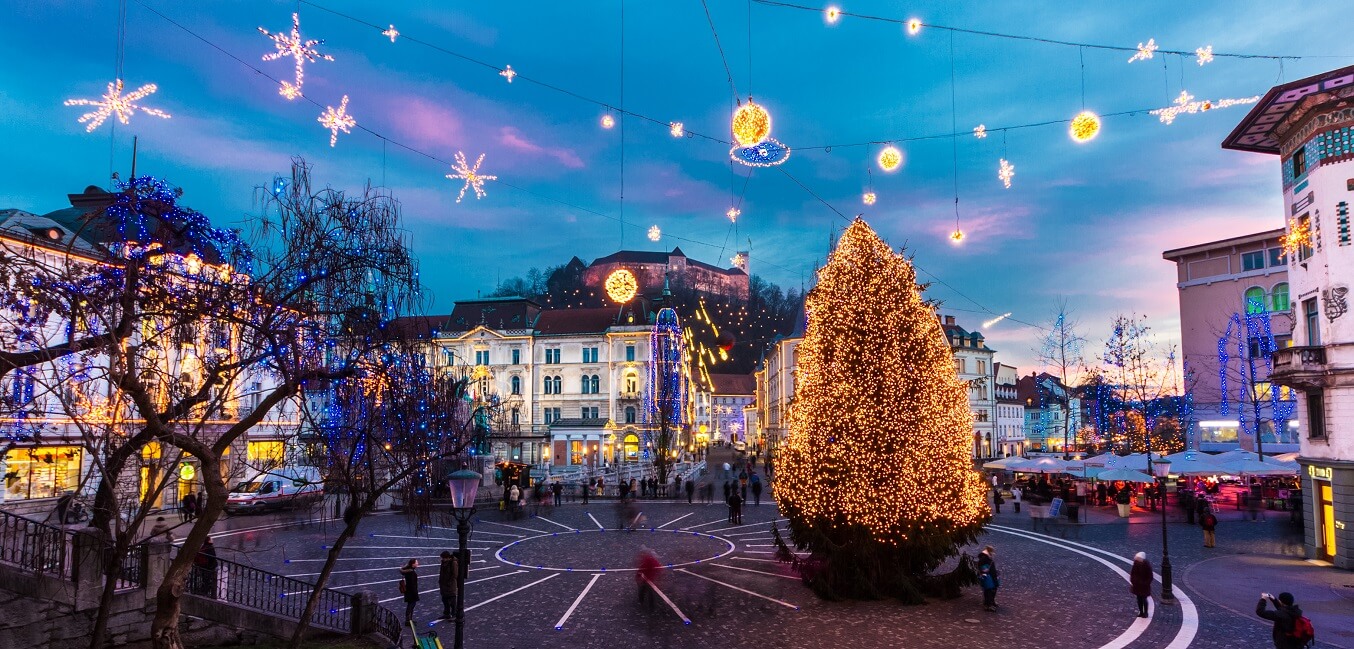
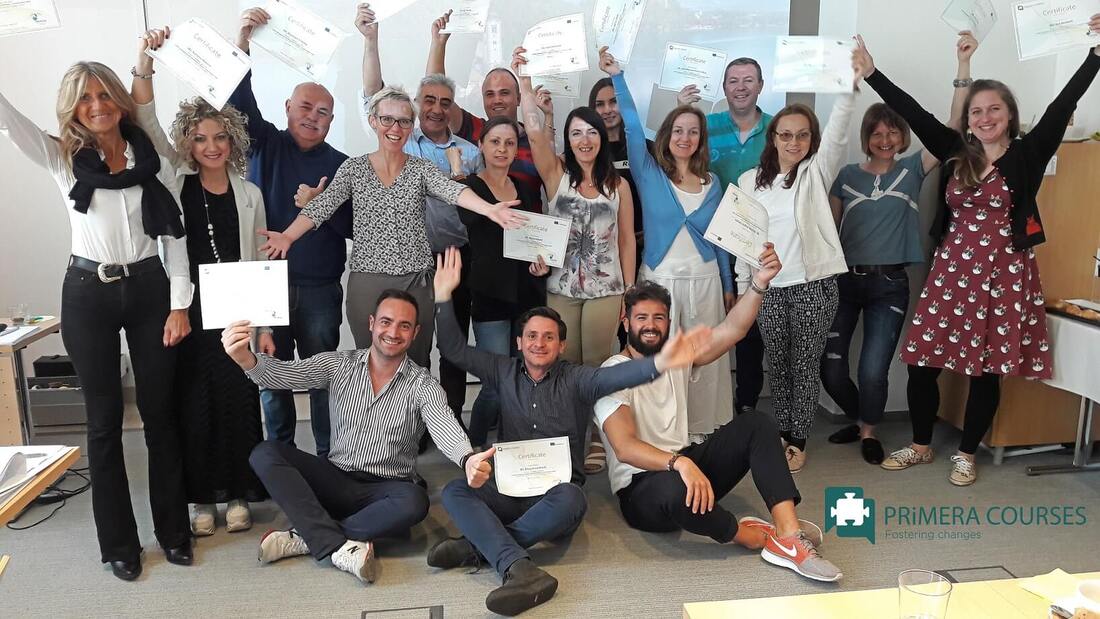
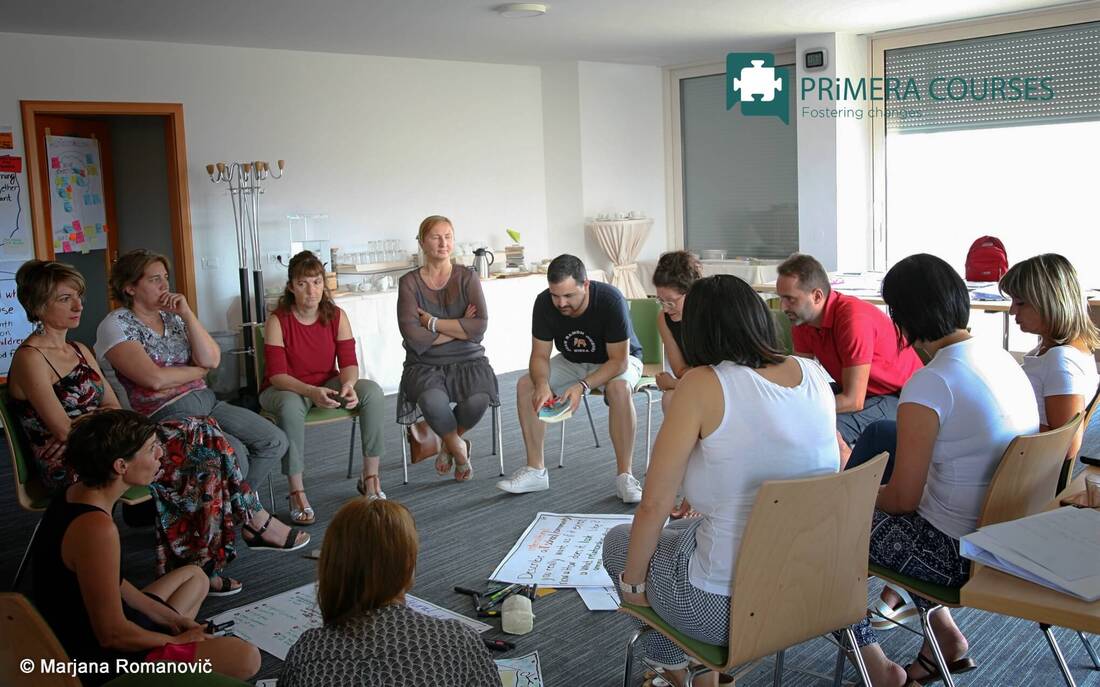
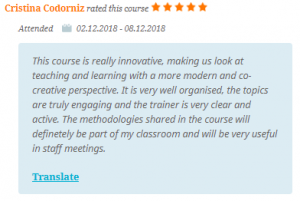
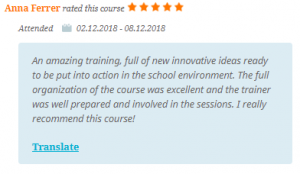
 RSS Feed
RSS Feed